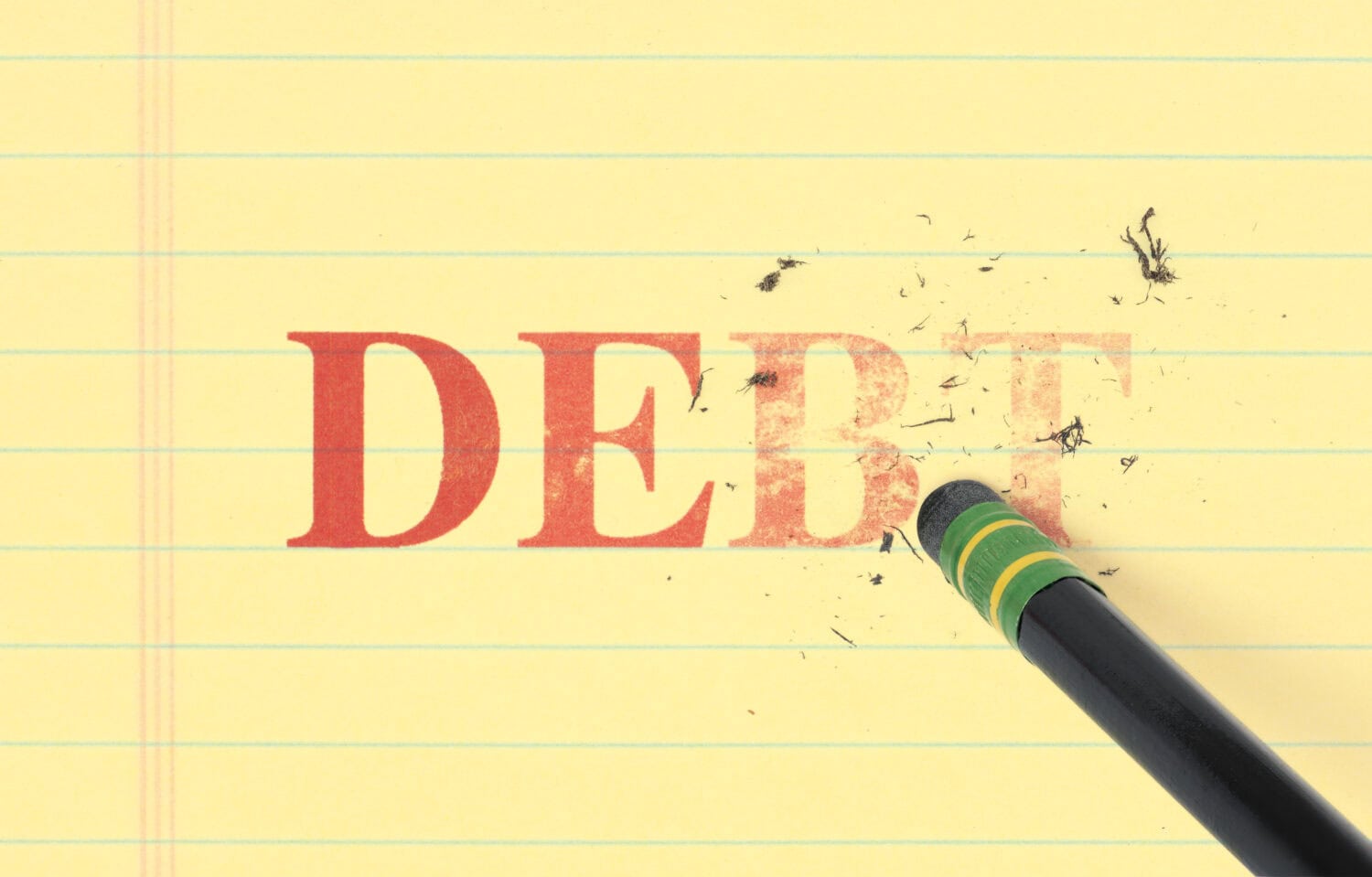Personal Finance
Millions of Baby Boomers Are Retiring With Debt - Should They Pay It Off?

Published:

Many Baby Boomers are retiring with debt.
High-interest debt should ideally be paid off before retiring.
Using the debt snowball method or refinancing debt can help you become debt-free faster.
4 million Americans are set to retire this year. If you want to join them, click here now to see if you’re behind, or ahead. It only takes a minute. (Sponsor)
In 2024, Baby Boomers had a collective total of $4.50 trillion in debt, according to data from Experian. This is down from $4.58T in 2023. While Millennials and GenXers have more debt than Boomers do, Boomers owe more than the Silent Generation and more than GenZ.
While most people have traditionally focused on paying off debt before retirement, that’s not necessarily going to be the case with the Boomers, many of whom are in retirement already or close to it. To understand where they stand, let’s take a look at what Boomers currently owe, whether payoff should be a priority, and how they can clear their obligations to creditors before their debt derails their retirement dreams.
Boomers clearly have a lot of loans outstanding with $4.50 trillion in debt, but exactly what kind of debt does this generation have? Let’s take a look at some of the specifics from Experian’s data. Boomers owe an average of:
Much of this debt is not going to be gone before old age arrives. In fact, the AARP reports that 53% of households headed by someone 75 and over had debt in 2022 compared to 32% in 1992. Among those 65 and over who are carrying outstanding balances, 65% say that it’s a problem and 29% say it’s a major problem.
Unfortunately, going into retirement with debt can be a major financial issue. There are a few big problems with leaving work while still carrying a large balance:
Retirement is a time in your life when you need to be in as secure a place as possible. Debt adds to your insecurity and it is typically not something you want to deal with after you lose the stability of employer-provided income.
As a general rule, you should try to pay off all that you owe before you leave work. If you do, you won’t need as much income in your later years. However, this is not always the right move, and it’s not always feasible.
There are some circumstances where it may not make sense to focus on debt paydown but instead to retire while you still have a balance. That’s especially the case with mortgage debt. If you were lucky enough to get a home loan at a very low rate during the pandemic or even in the pre-pandemic era, then keeping that loan makes more sense than trying to send extra payments to pay it down. If you have a mortgage at 2.9%, for example, you are much better off just paying the minimum and investing any extra money you might be thinking about putting toward debt paydown.
If you have higher-interest debt, on the other hand, then paying it off should be a priority before retiring if at all possible. This is especially true for very expensive types of debt like credit cards or payday loans. The interest can be far too much of a burden to pay out of your retirement funds.
There is, however, one caveat to be aware of. You do not want to drain your retirement account to become debt-free. Say, for example, you owe $50,o00 on your mortgage and credit cards. It may be tempting to take that money out of your 401(k) when you retire to pay off all your balances. Unfortunately, a big withdrawal from a retirement account could trigger a big tax bill and also leave you without the funds invested that you need to earn returns and maintain your account balance.
If it’s a choice between carrying debt into retirement and withdrawing funds at an unsafe rate, then carrying the debt is the better move. Of course, the best choice would likely be to keep working until the balance is paid when possible.
If you are carrying a debt balance, you should make a plan to pay it off so you can be done with your creditors before you leave your job. You can do this by figuring out when you are going to retire and calculating how much to pay each month before that date to eliminate your outstanding loans.
For example, if you are retiring in four years and you have a $20,000 credit card balance to deal with at a 27% interest rate, you could use an online card payoff calculator to determine that you must pay $685 per month from now until retirement to make the debt disappear in time.
Once you know how much to pay, adjust your budget to accommodate that payment. This could mean cutting spending on other things, depending on just how much you owe. If you cannot afford the payment even with spending cuts, consider whether you can pick up a side gig, do some overtime at work, or delay retirement a little bit to give you more time.
After you’ve made room in your budget, set up automatic payments so your debt will get paid as necessary each month and you’ll owe nothing more when the time to retire arrives.

There are a few different techniques you can try to make the payoff process easier.
One is refinancing your debt. If you have a lot of high-interest debt, you may be able to take out a personal loan or even a home equity loan or line of credit to refinance. You can use the new cheaper loan to pay off the more expensive debt, making payback easier. Just be careful about home equity loans because you do put your house at risk.
You can also try a debt snowball approach, which means focusing on paying down the debt with your lowest balance first and then shifting the payments to your debt with the next lowest balance. This technique, made popular by Dave Ramsey, is supposed to keep you motivated.
By exploring these strategies, hopefully you can achieve the goal of debt-freedom before you become a retiree. It’s well worth the effort so you can have the peace of mind of knowing you don’t owe money you must pay out of your limited retirement funds.
Retirement can be daunting, but it doesn’t need to be.
Imagine having an expert in your corner to help you with your financial goals. Someone to help you determine if you’re ahead, behind, or right on track. With SmartAsset, that’s not just a dream—it’s reality. This free tool connects you with pre-screened financial advisors who work in your best interests. It’s quick, it’s easy, so take the leap today and start planning smarter!
Don’t waste another minute; get started right here and help your retirement dreams become a retirement reality.
Thank you for reading! Have some feedback for us?
Contact the 24/7 Wall St. editorial team.